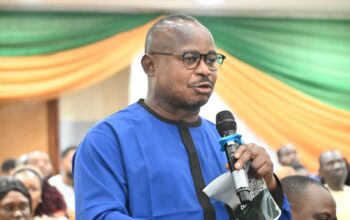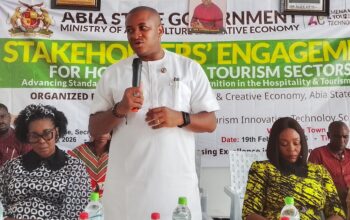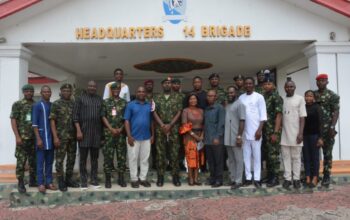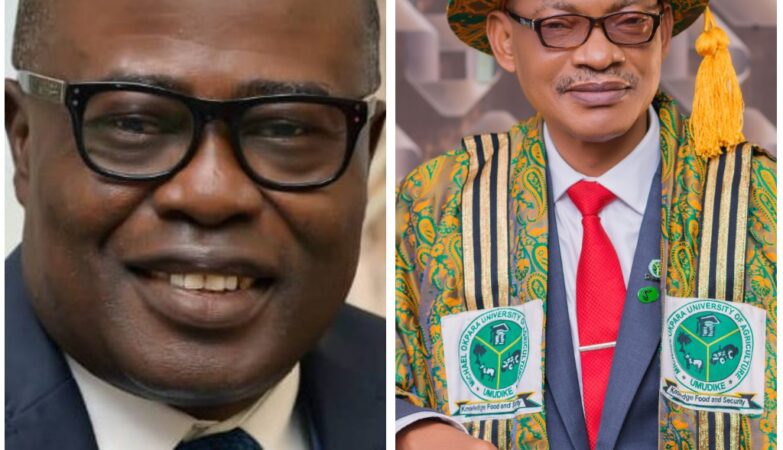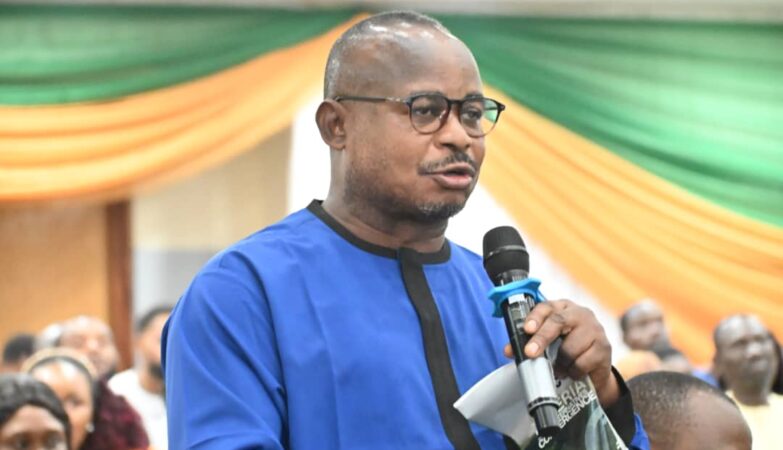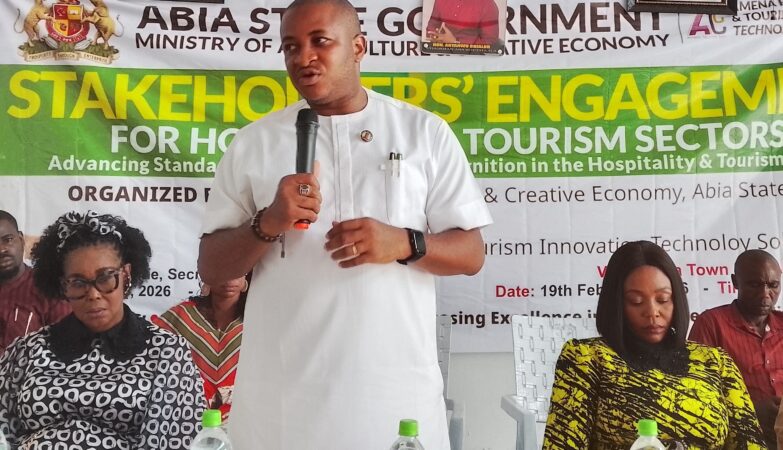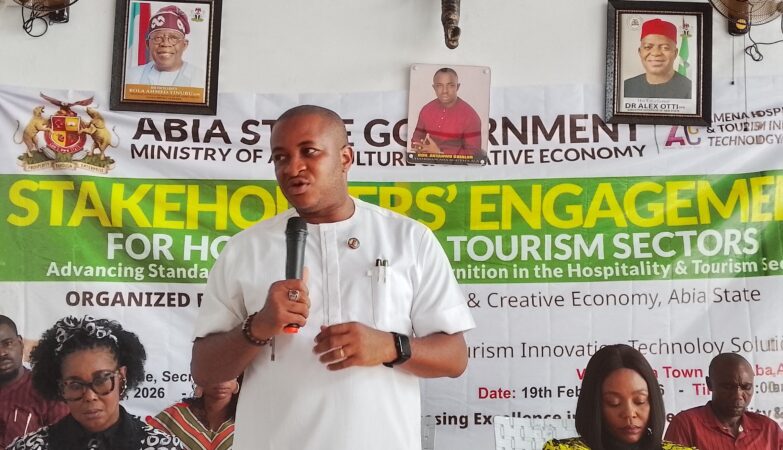Abia State government has promised to sustain its robust relationship with the media in the state.
Governor Alex Otti gave the assurance through the state commissioner for information, Prince Okey Kanu during the maiden edition of Abia media day held in Umuahia on the theme “celebrating the voice of Abia, empowering the future of media”.
Otti who was the special guest of honour at the event acknowledges that the media shapes the society, holds government accountable, also encouraged them to hold the agenda setting of the profession firmly.
He advised media practioners not to lose focus on the role of the agenda setting, pointed out that the media faces a lot of challenges.
According to him, despite the shortcomings, the media in the state has projected the present government well, expect for few who have not worked closed with government media team.
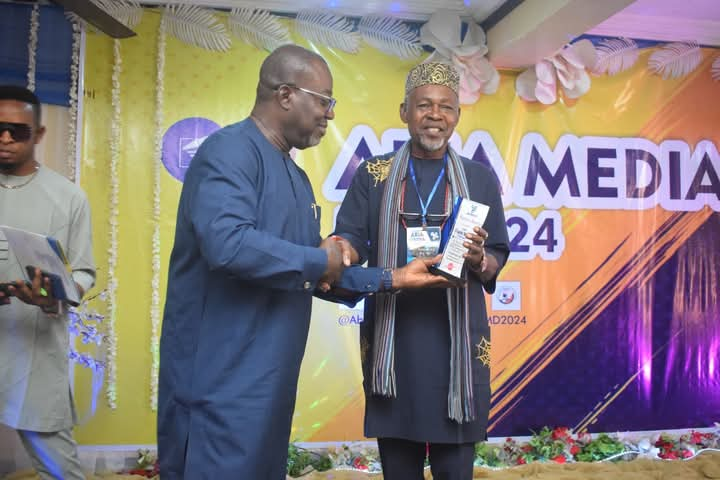
He further charged Abia media practitioners to use their platforms to attract investors, promote the state tourism, while government on his part, will continue to show commitment.
The guest of honour at the occasion and deputy speaker house of representative, Right Honourable Benjamin Kalu described the media as the live wire of the society.
Kalu who was represented by pastor Emma Charles Eke commended Abia media for organizing the program and thanked media workers in Abia State for projecting the state well.
He disclosed that the President has appointed some Abia indigenes in South East development commission, a feat he recognized as honour to the state.
The deputy speaker maintained that those appointed from Abia would attract infrastructure and development to the state.
Also speaking, the senator representing Abia senatorial zone, Austin Akobundu represented by his media aide, Uche Nwosu noted that the media industry has done excellently.
Akobundu added that the media has produced prominent persons in the state and across the nation, advising that both the electronic, print and bloggers should come together to have a new course.
In his lecture, a mass communicator and political scientist, Maduka Okoro in a lecture titled “Challenges of the Media in Today’s Contemporary Nigeria” pointed out that the media in Nigeria is facing a serious challenge of censorship and repression.
He said the government’s tendency to muzzle the press and restrict freedom of expression is a major concern. The Cybercrime Act and the Hate Speech Bill are examples of laws that can be used to silence journalists and stifle free speech.
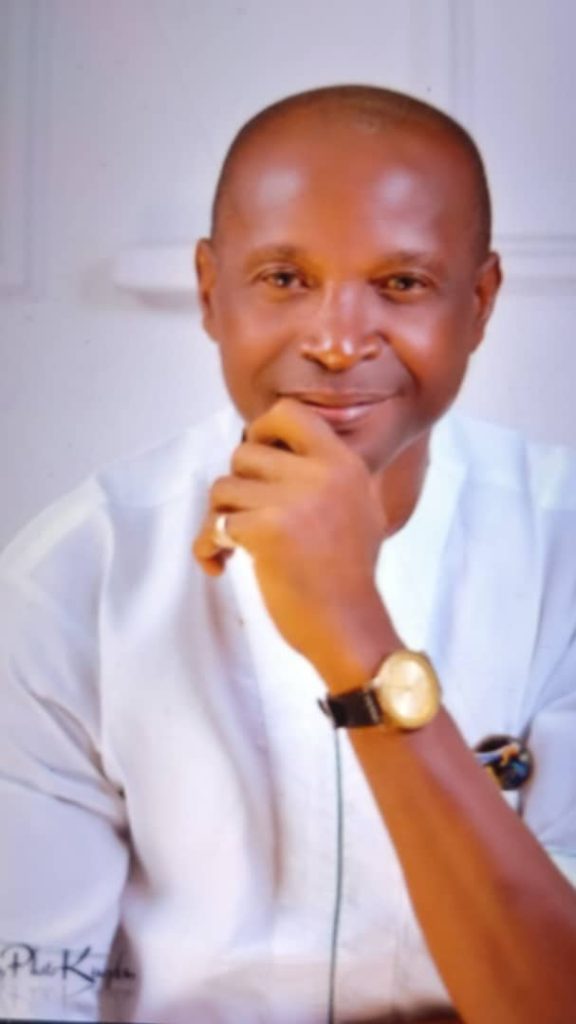
“Secondly, the media in Nigeria is struggling to maintain its independence and impartiality in the face of increasing commercial pressure. The decline of traditional revenue streams has forced many media outlets to rely on advertising and sponsored content, which can compromise their editorial independence”.
“Thirdly, the media in Nigeria is facing a challenge of professionalism and ethics. The proliferation of fake news and propaganda has eroded public trust in the media. Journalists must adhere to the highest standards of professionalism and ethics to regain public trust”.
He stated that the media in Nigeria is struggling to adapt to the changing needs of its audience. The rise of digital media has created new opportunities for engagement and interaction, but it has also created new challenges.
“The media must find ways to balance the need for instant gratification with the need for in-depth analysis and reporting.”
He said the media in Nigeria is facing a challenge of safety and security, saying that journalists are often harassed, intimidated, and even killed for doing their job. The speaker said that government must take concrete steps to protect journalists and ensure that they can work safely and freely.
Maduka Okoro added that the media in Nigeria is facing a challenge of regulation and oversight. Maduka said the National Broadcasting Commission (NBC) and the Nigerian Press Council (NPC) must be strengthened to regulate the media effectively and ensure that journalists adhere to the highest standards of professionalism and ethics.
According to Maduka, the media in Nigeria is facing numerous challenges that threaten its ability to perform its duties effectively.
However, he pointed out that despite these challenges, the media remains a vital institution in Nigerian democracy.
Earlier in his opening remarks, the coordinator of the event, Emenike Iregbu said the media day concept was designed to review the efforts of media in the state and get possible feedback from the public.
Emenike pointed out that the media is a key industry and encouraged his colleagues to work together for the growth of the growth of the profession.


